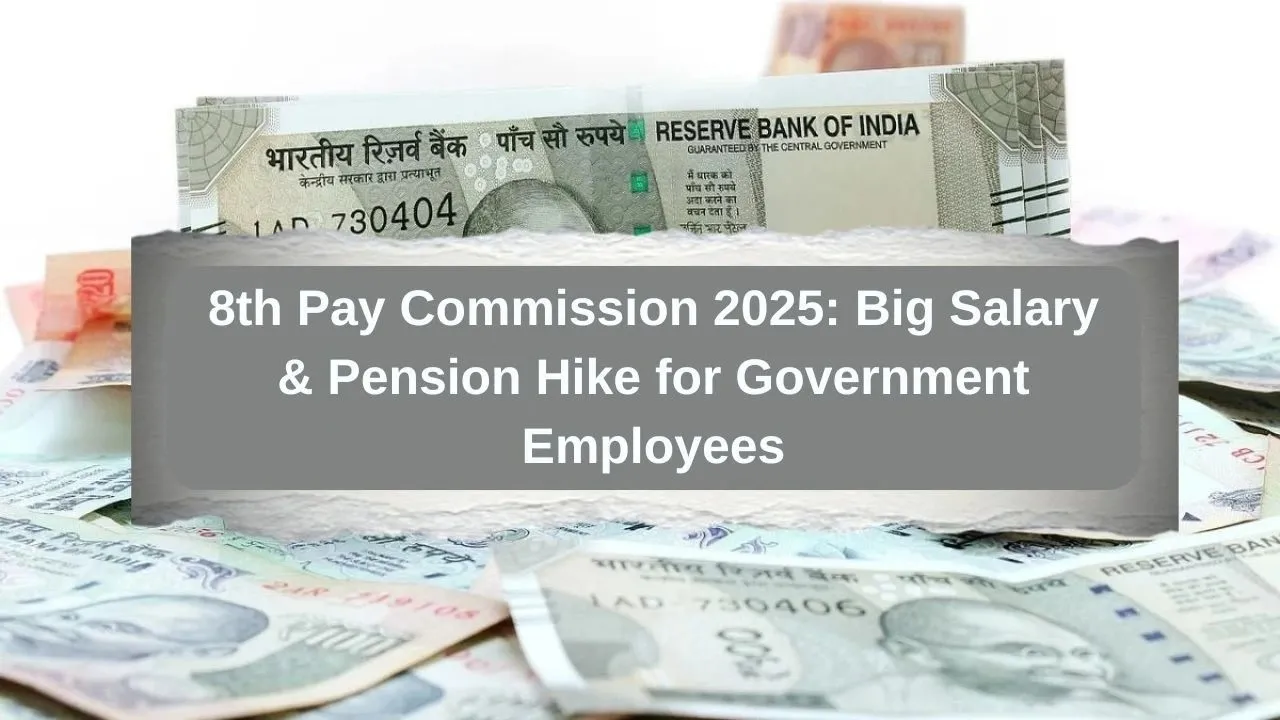The 8th Pay Commission is anticipated to implement a major increase in salaries and pensions beginning in 2025, a historic decision that will affect the lives of millions of government workers and pensioners throughout India. The new commission has been eagerly awaited and is finally starting to take shape, providing optimism for a more financially secure future for central government employees and pensions as inflation, living expenses, and economic difficulties continue to rise.
8th Pay Commission: What Is It?
Periodically, pay commissions are set up to examine and suggest modifications to the central government employees’ pay scales. The most recent in line, the 8th Pay Commission seeks to update pensions, allowances, and pay scales to reflect the state of the economy.
The commission’s recommendations are anticipated to be finalized by the end of 2025 and are scheduled to go into effect on January 1, 2026. It will take the place of the 2016 implementation of the 7th Pay Commission.
Pay Increases for Government Workers
The rise in the base pay structure is one of the most expected results of the 8th Pay Commission. Although precise numbers have not yet been formally verified, preliminary projections indicate the following:
- The minimum basic compensation for entry-level workers may increase from ₹18,000 to approximately ₹26,000–₹30,000.
- Officers and mid-level employees can see a 20%–30% raise in base salary.
- Senior officers and other top-level staff may receive raises in response to inflationary trends and expanding responsibilities.
The fitment factor, which is a multiplier applied to current basic pay to determine the new pay, will probably change as a result of this rise. Experts predict that the factor, which was 2.57 under the 7th Pay Commission, may be changed to 2.5 or higher.
Pension Changes for Retired Workers
There is also good news for retired central government workers. In light of inflation and growing medical expenses, a pension increase is not only pleasant but also essential. It is anticipated that the new commission will:
- Increase the minimum pension amount by a considerable amount, possibly from ₹9,000 to ₹14,000 or more each month.
- In order to stay up with inflation, dearness relief (DR) estimates should be improved.
- Perhaps restructure the family pension and gratuity laws to better assist dependents.
- This could improve the financial security of millions of fixed-income pensioners.
Benefits and Allowances
Changes in House Rent Allowance (HRA), Travel Allowance (TA), and Medical Reimbursements are anticipated to occur in addition to increases in salaries and pensions. These benefits will be adjusted to account for current housing costs, transportation costs, and medical requirements.
For example, in order to make up for increased living expenditures, employees in urban areas can earn much larger HRA.
Effects on the Economy and Employee Morale
Positive knock-on effects are anticipated from the 8th Pay Commission’s implementation:
- Spending will rise with higher disposable incomes, which will help the economy.
- Government agencies may become more efficient as a result of higher employee morale.
- The change will support talent retention by preserving pay parity with occupations in the private sector.
In addition to updating policies, the 8th Pay Commission honors the commitment, hard work, and service of millions of public sector employees and retirees. The government is moving closer to financial empowerment and equity by resolving long-standing requests and adjusting wage systems to reflect current economic situations. Both workers and retirees should anticipate a better, safer future as the commission’s proposals come to fruition.

